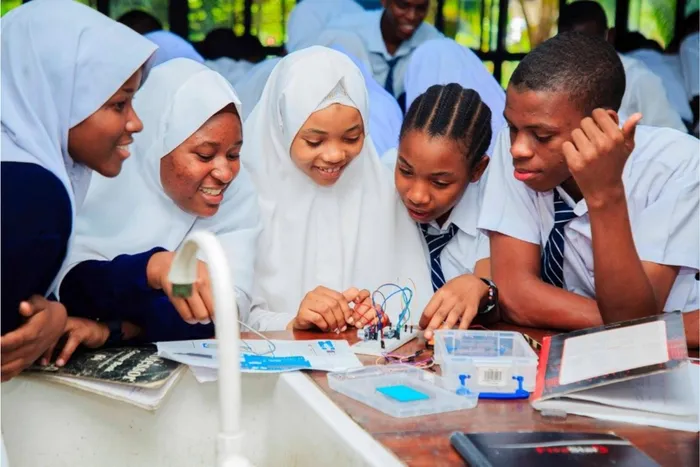
As South Africa battles a shortage of STEM graduates, the World Robot Olympiad is giving young people a head start in coding, robotics, and AI. From local bootcamps to global finals in Singapore, African learners are proving that innovation can start anywhere.
Image: Supplied
The World Robot Olympiad (WRO), one of the world’s largest robotics competitions, has made major inroads across Africa, expanding from just five participating countries in 2020 to 14 this year. More than 40 000 young people are taking part in the 2025 season, supported by over 2 000 trained teachers and global partners including Google and the United Nations Economic Commission for Africa (UNECA).
The initiative is equipping a new generation of Africans with future-ready skills in coding, engineering and artificial intelligence (AI). Each year, WRO challenges students to design and build robots that solve real-world problems. This year’s theme, “The Future of Robots,” has inspired bootcamps and workshops across the continent, reaching hundreds of learners, including those from underserved and special needs communities.
South Africa’s involvement in the programme comes at a critical time. The country faces a serious shortage of Science, Technology, Engineering and Maths (STEM) skills, with only 7% of matriculants qualifying for STEM-related degrees, despite youth unemployment sitting at 45.5%.
To help close this gap, several local organisations have partnered with WRO, including Care for Education, universities, and schools such as Parklands College, Helderberg Robotics Club, and Sentinel Primary Robotics Club.
WRO also hosts invitationals, such as a recent challenge attended by Carnavon High School (supported by SARAO), where students had just two minutes to programme a robot to autonomously navigate obstacles and complete missions using LEGO and robotics materials.
National champions will go on to represent their countries at the WRO International Final in Singapore this November, joining teams from more than 90 nations.
Across Africa, young innovators are using robotics to solve problems that matter most in their communities. In Zimbabwe, Team FutureSight - winners of the National Senior Category Championship - developed an AI-powered voice assistant for the blind. The device supports visually impaired users with daily tasks and is being adapted to local languages to make it more accessible.
In South Africa, 23-year-old Karabo Rithuri’s story reflects the long-term impact of WRO on young lives. She joined a pilot robotics programme at age 13 and later represented her country at the WRO International Final in Malaysia. When her school later discontinued robotics, she founded her own club with help from local sponsors.
Today, Rithuri holds degrees in Finance and IT, serves as a WRO judge, and mentors township learners.
“WRO gave me a voice, and now I want to help make things even better for the next generation,” said Rithuri.
WRO secretary general, Claus Ditlev Christensen, said the Olympiad’s growing footprint in Africa marks a key moment for the organisation.
“WRO’s expansion into Africa is an important milestone in our mission to inspire young people through robotics and STEM. We are proud to see African students not only building technical skills but also developing solutions that address real needs in their communities.”
With Africa’s rapidly growing youth population and focus on innovation, WRO is becoming a powerful platform for skills development, international collaboration and social change. Initiatives such as WRO Learn and the Future Innovators Project are widening access to robotics education — empowering young people to collaborate, solve problems and become tomorrow’s changemakers.
About WRO: The World Robot Olympiad Association is a global non-profit that engages more than 100 000 young people across 100 countries in hands-on robotics challenges designed to foster creativity, problem-solving and STEM leadership. Visit wro-association.org for more.
Related Topics: